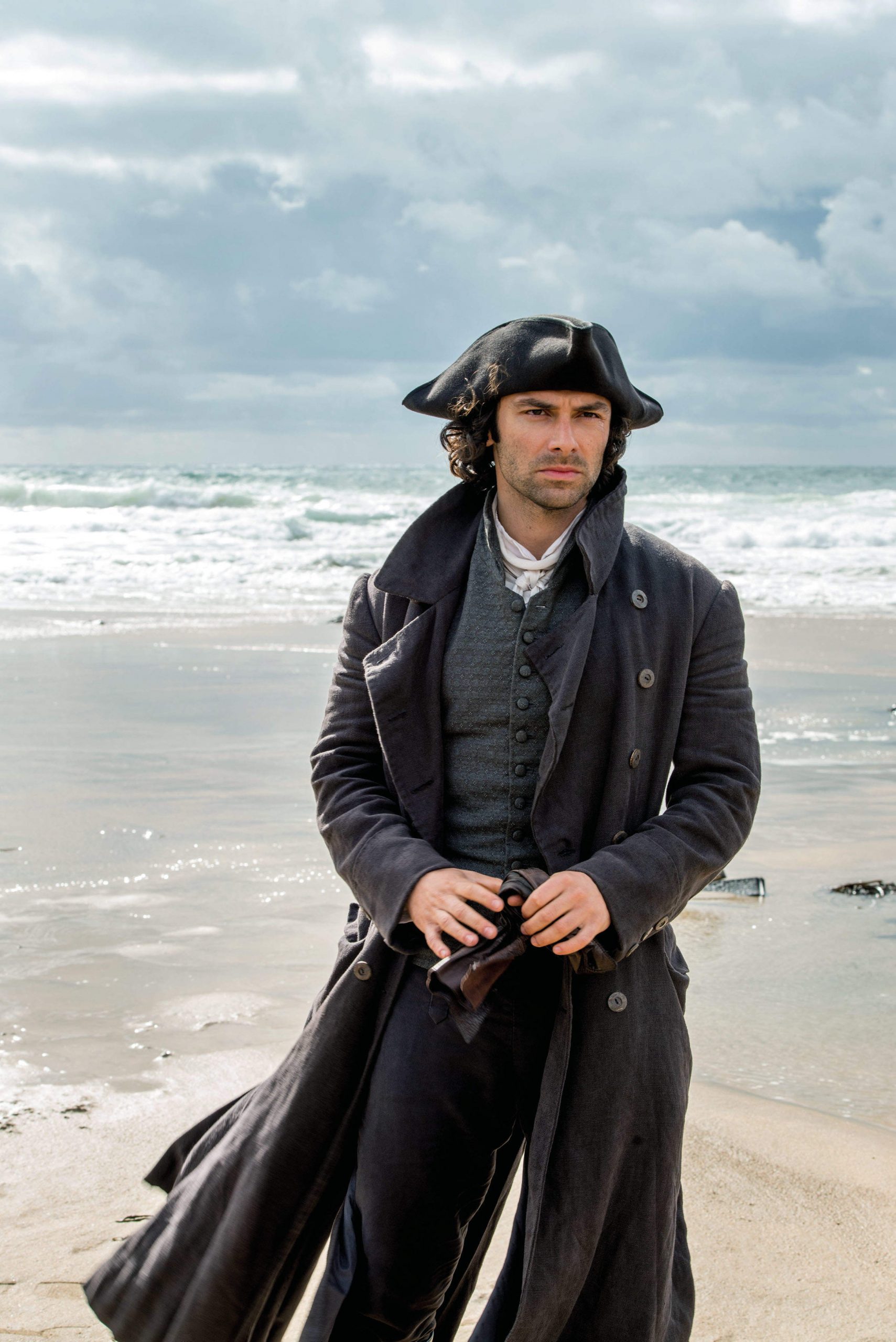
Political turmoil, economic insecurity, a major rupture with the Continent, popular unrest and a growing backlash against the elites… British politics in 2017 increasingly resembles the plot of Poldark, the BBC drama set in 18th-century Cornwall.
Against the odds, Ross Poldark is turning round the fortunes of his late father’s failing estate. He also lands blows on his bitter enemy George Warleggan, whose arrogant attempt to smear Poldark backfires. While Poldark’s courage to take on the establishment earns him popular support, Warleggan’s scheming and cold calculation ultimately dent his bid to rule unopposed. All this is rather reminiscent of the unexpectedly strong showing of Jeremy Corbyn and the Labour Party in the election that Theresa May did not have to call and nearly lost.
At first, Poldark seems to be the Cornish Corbyn, a revolutionary redcoat who defies the ruling classes and fights for the many. In the first and second seasons of the TV adaptation of Winston Graham’s novels (it is now in its third), Poldark spends much of his time trying to keep open the failing copper mines that he has inherited from his father. His concern is to save the jobs and livelihood of the workers who would otherwise face starvation or the debtors’ prison.
In a recent episode, Poldark even gives the miners, who have been made redundant by Warleggan, part of his land to grow food on. Corbyn’s campaign against Tory cuts, job insecurity, the reliance on food banks and payday loans is of a piece with this fight against poverty. But in reality, Poldark is more blue than red. A conservative sense of duty, loyalty and love of ancestral land runs through his veins more than a sense of individual rights and cosmopolitan altruism.
An army captain who fought in the war against American independence and later led an expedition to free his friend Dwight Enys from the clutches of the French revolutionaries, he is a military man whose first loyalty is to his country and fellow soldiers. However, far from being a warmonger, Poldark knows about the horrors of mass conflict. “War takes a man places no one can ever follow,” he says.
Ross Poldark comes from an old family to which he is fiercely loyal – especially his aunt Agatha, who is the last living link to his deceased father and uncle. For him, the family name Poldark embodies a deep attachment to people, place and purpose: upholding traditions of mutual obligation among relatives, neighbours and the local community around hard work and decency. “The Poldarks,” Graham writes, “had always been on good terms with their tenants. Distinction of class was not absent; it was understood so clearly that nobody needed to emphasise it; but… polite convention was not allowed to stand in the way of common sense.”
Family, hard work and community are central to a story of pride and dignity once familiar to the Labour movement and crucial to its historic identity of representing the people across divisions of class, colour or creed. But today, the left often collapses sentiments of attachment into a soulless socialism – an economistic notion of income redistribution and ideological class warfare against the rich led by a centralised state.
On the contrary, Poldark defends poachers, helps fugitives and takes on the corrupt without demonising the wealthy. His nemesis, Warleggan, is not old aristocracy but new money – a leading member of a class of industrialists and bankers whose greed and ambition violate a traditional sense of honour and virtue. The issue is not Warleggan’s wealth but rather the arriviste attitude of someone who denies his humble origins and seeks social recognition at any cost.
Neither Tory nor Whig, Poldark is committed to fairness and economic justice based on reciprocity – relationships of give and take and the honouring of contributions to the community. A revulsion against wilful injustice, not mere income inequality, drives Ross in his crusade against the abuse of power and privilege. Instead of wallowing in a culture of victimhood, Poldark believes in sacrifice, service and solidarity with the dispossessed. He waits neither for the visible hand of the state nor for the invisible hand of the market, but promotes self-government and democratically governing institutions of mutual assistance. Specifically Poldark helps to set up workers’ co-operatives in which members have power and can share in the sacrifices, risks and, indeed, rewards.
Critics will say that both the novels and the TV series present a pretty picture of an idealised community that is reassuring in an unsettling world. But leaving aside the way that the TV adaptation glamorises Poldark (played by Aidan Turner) and his rippling pecs, it shows a man with gambling debts, a history of violence and a penchant for pretty prostitutes. Like all human beings, Poldark is no heroic superman. Rather, he combines vice with virtue. He is a flawed character who cares and is capable of doing good.
Poldark is not a story of shallow optimism with a happy ending. It highlights a society driven and riven by injustice, jealousy, vindictive pettiness and betrayal. The ravaged communities live along a rugged coastline. There are clifftops and fishing coves surrounded by the blue ocean – a colour of grief and melancholia that is reflected in the brooding character of the protagonist.
Drawing parallels between 18th-century Cornwall and Britain today is fraught with the dangers of anachronism. But then as now, we were all at sea. Nonetheless, we live on dry land and are social creatures who are embedded and embodied. Poldark reminds us of our attachment to people, place and common purpose. You could call this a kind of conservative socialism – or, perhaps, Blue Labour.
Adrian Pabst is the co-author, with John Milbank, of “The Politics of Virtue: Post-Liberalism and the Human Future” (Rowman & Littlefield)
This article appears in the 26 Jul 2017 issue of the New Statesman, Summer double issue





